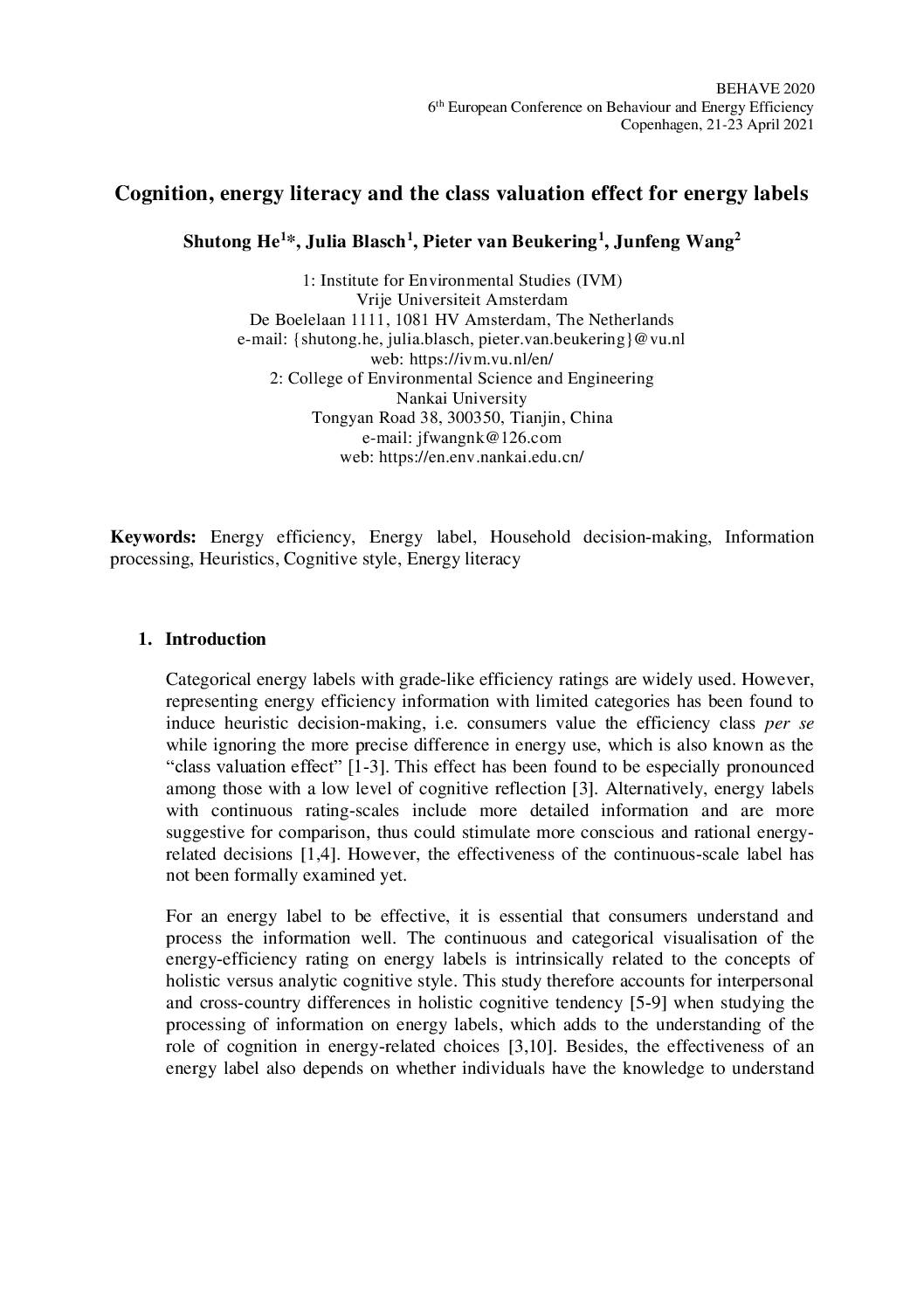Categorical energy labels with grade-like efficiency ratings are widely used. However, representing energy efficiency information with limited categories has been found to induce heuristic decision-making, i.e. consumers value the efficiency class per se while ignoring the more precise difference in energy use, which is also known as the “class valuation effect”. This effect has been found to be especially pronounced among those with a low level of cognitive reflection. Alternatively, energy labels with continuous rating-scales include more detailed information and are more suggestive for comparison, thus could stimulate more conscious and rational energy-related decisions. However, the effectiveness of the continuous-scale label has not been formally examined yet.
For an energy label to be effective, it is essential that consumers understand and process the information well. The continuous and categorical visualization of the energy-efficiency rating on energy labels is intrinsically related to the concepts of holistic versus analytic cognitive style. This study therefore accounts for interpersonal and cross-country differences in holistic cognitive tendency when studying the processing of information on energy labels, which adds to the understanding of the role of cognition in energy-related choices. Besides, the effectiveness of an energy label also depends on whether individuals have the knowledge to understand and utilize information and if they hold values and norms towards energy-saving. Therefore, this study systematically measures and examines the influence of energy literacy on decision-making by following the multifaceted energy literacy concept. Overall, this study addresses the following issues (1) whether the continuous-scale label, as opposed to the categorical label, can support rational decision-making and decrease the use of heuristics, (2) the role of cognitive styles and energy literacy for the processing of information on energy labels, and (3) the differences in the effectiveness of the labels across countries.
Download sourceShare this

Sectors: Cross cutting, Power sector
Country / Region: Global
Tags: decision-making, efficiency labelings, energy, energy efficiency, energy efficiency information, energy input labelings, labeling, labels, literacyIn 1 user collection: Session 3b: Behaviour Interventions for the integration of Energy Efficiency and Renewable Energy
Knowledge Object: Publication / Report
Publishing year: 2020
Author: Shutong He, Julia Blasch, Pieter van Beukering, Junfeng Wang
Content:

